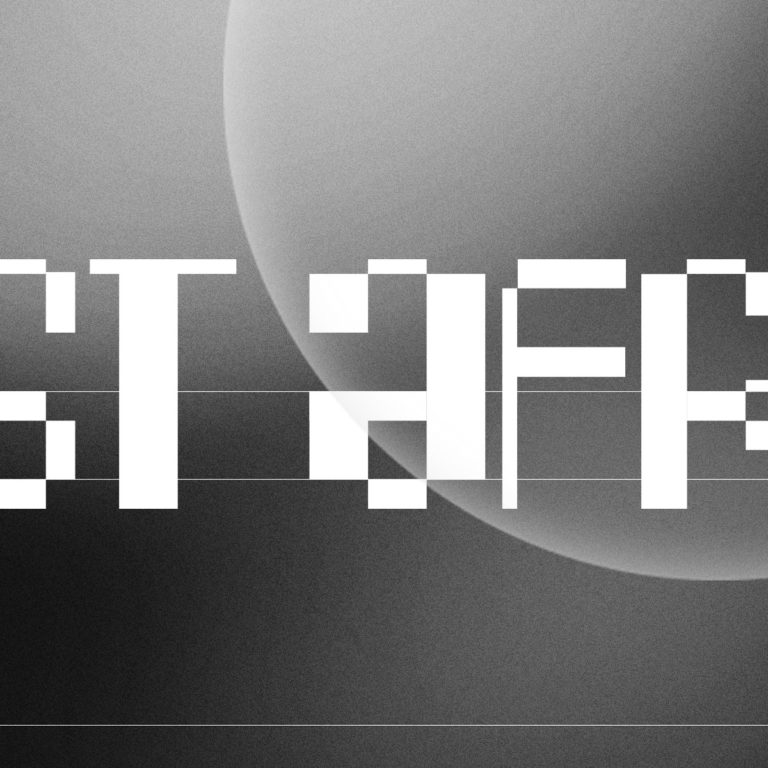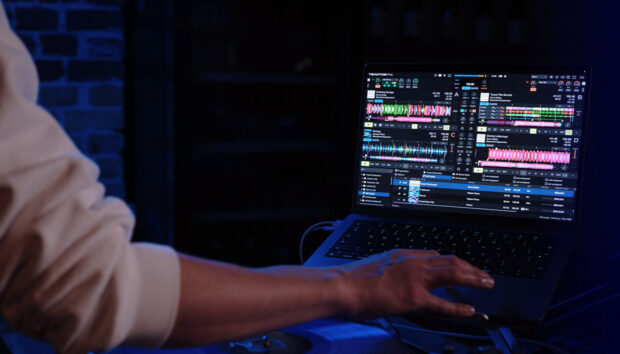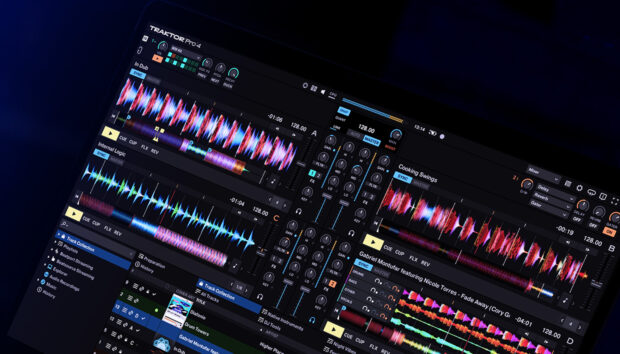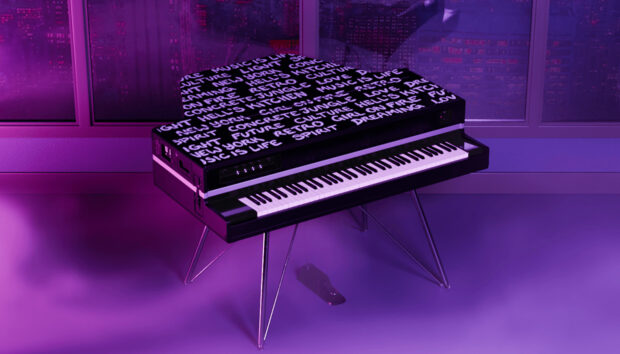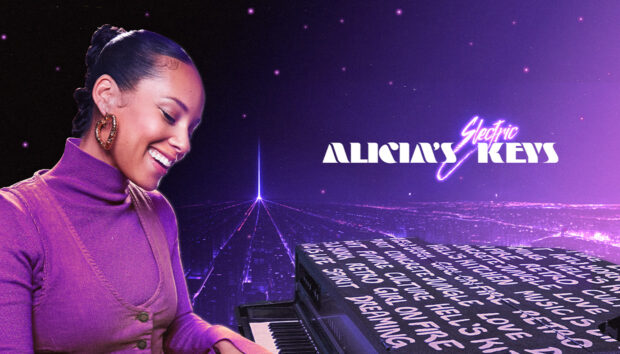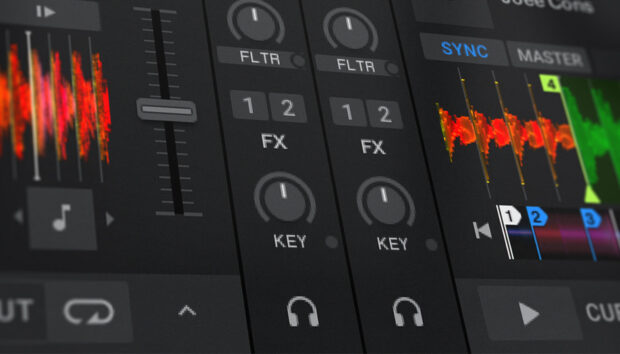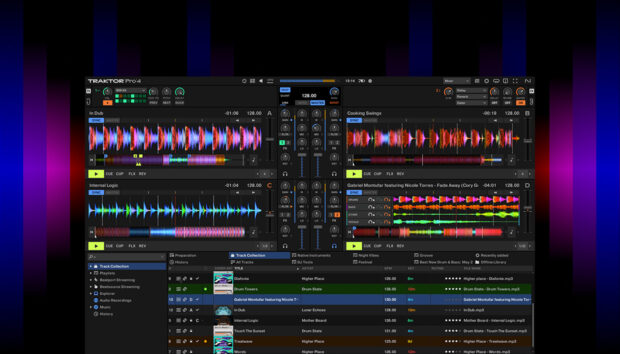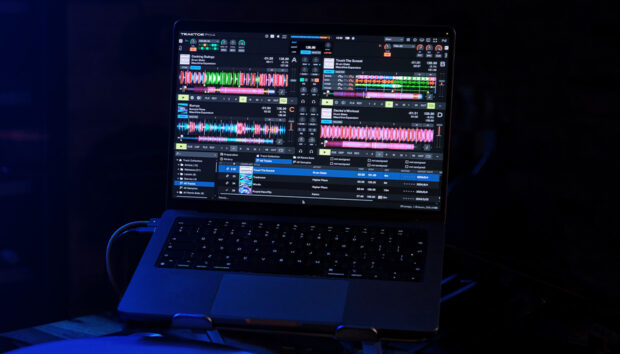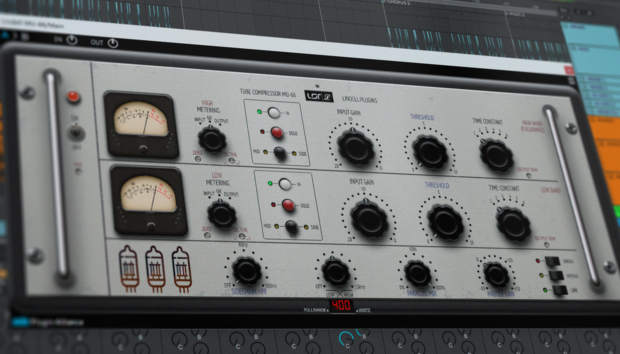East Africa has undergone a seismic cultural shift in the last 15 years. Once known for its wide-ranging live music circuit of benga and rhumba bands, the region now vibrates to a myriad of electronic music styles – from imported afrobeats and amapiano, to homegrown gengetone, drill, singeli, afro-house, and a slew of experimental styles that have created a global buzz. When this blog reported on the new sounds of East Africa in 2018, we highlighted some of the movers and shakers active in the scene – DJ Rachael, EA Wave, Nyege Nyege, and Santuri East Africa, to name but a few.
Four years later, there are even more reasons to be excited about the future sound of EA, and there is a new crop of artists making waves globally, many of them die-hard TRAKTOR users. We’ve seen artists such as Slikback blow up on international platforms and tour circuits having chosen TRAKTOR as his preferred tool – while the Nyege Nyege affiliated Hibotep even featured as the face of the TRAKTOR KONTROL S3 on its launch in 2019.
As a part of celebrations around TRAKTOR’s 20th anniversary, we thought it would be timely to catch up with some of the artists changing the narrative in Kenya and Uganda, and look ahead to what might follow for the region.
Makossiri
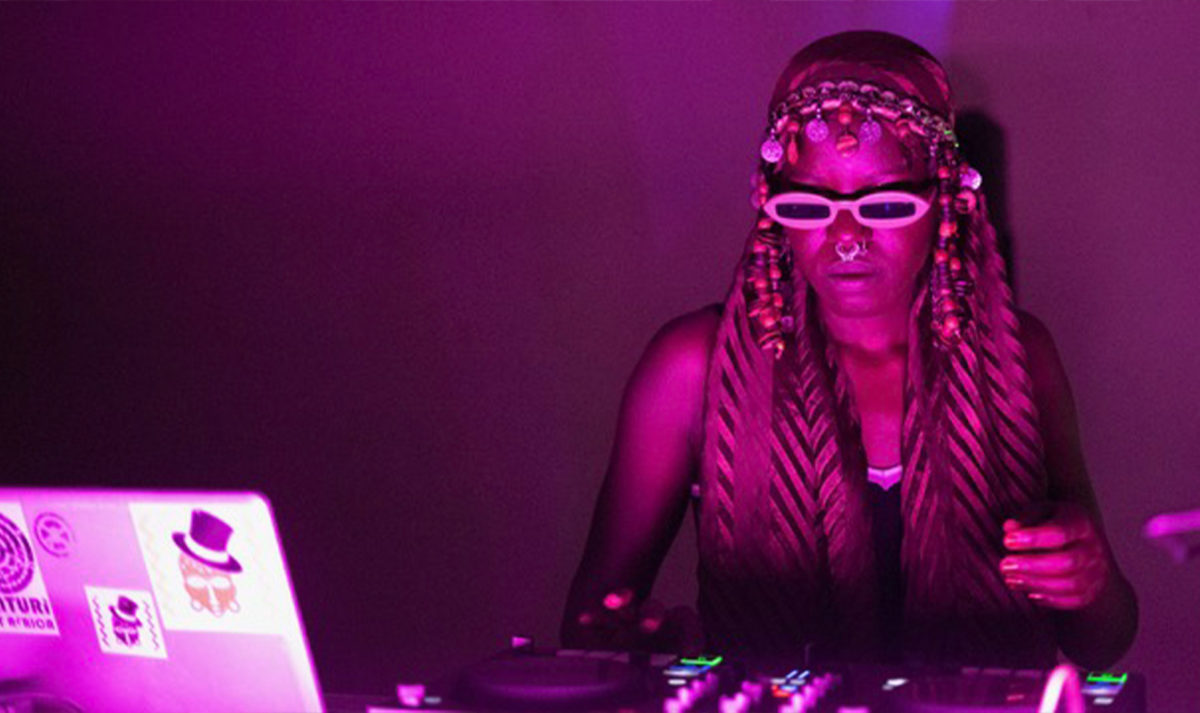
One of the breakout artists of the past two years, Makossiri is a Kenyan DJ and producer who cut their teeth at the Nyege Nyege residency villa, but recently returned to Kenya to attend the Santuri Electronic Music Academy (SEMA).
How did you get into DJing?
I’ve always wanted to be a DJ since I was 11. I remember while I was growing up my Mum would ask me what my career of choice was and I would tell her I wanted to be a DJ. When I moved to Kampala I did a DJ workshop with Femme Electronic, where I learnt the basics of DJing. At this point, it was just something I was trying out for fun as I was really heavily involved with the live music scene – singing and sometimes performing with various bands.
The actual reality of playing out in the world happened unintentionally as I had organized a party where I was performing live and I had booked other DJs to come play. On the day of the event, my guitarist told me he wasn’t able to come. I had to quickly figure out a way to still make my performance happen, so my friend helped me make a playlist and showed me a few things on the controller minutes before my performance. It wasn’t the best DJ set of my life, but I played for almost 2 hours and I really loved it and I’ve never looked back since.
How would you describe your style?
I would describe it as experimental, as I like to play lots of different genres, experimenting with dark, hard, and heavy sounds. Mixing African rhythms, experimental music, hardcore techno, industrial noise, psy-trance, and my own beats.
What would you say has been a key moment in terms of your development as an artist?
During the pandemic, I did a residency at the Nyege Nyege Villa in Kampala, Uganda where I got time to focus on music production while also being surrounded by a very talented community of artists. This really helped me develop my style as a DJ/producer.
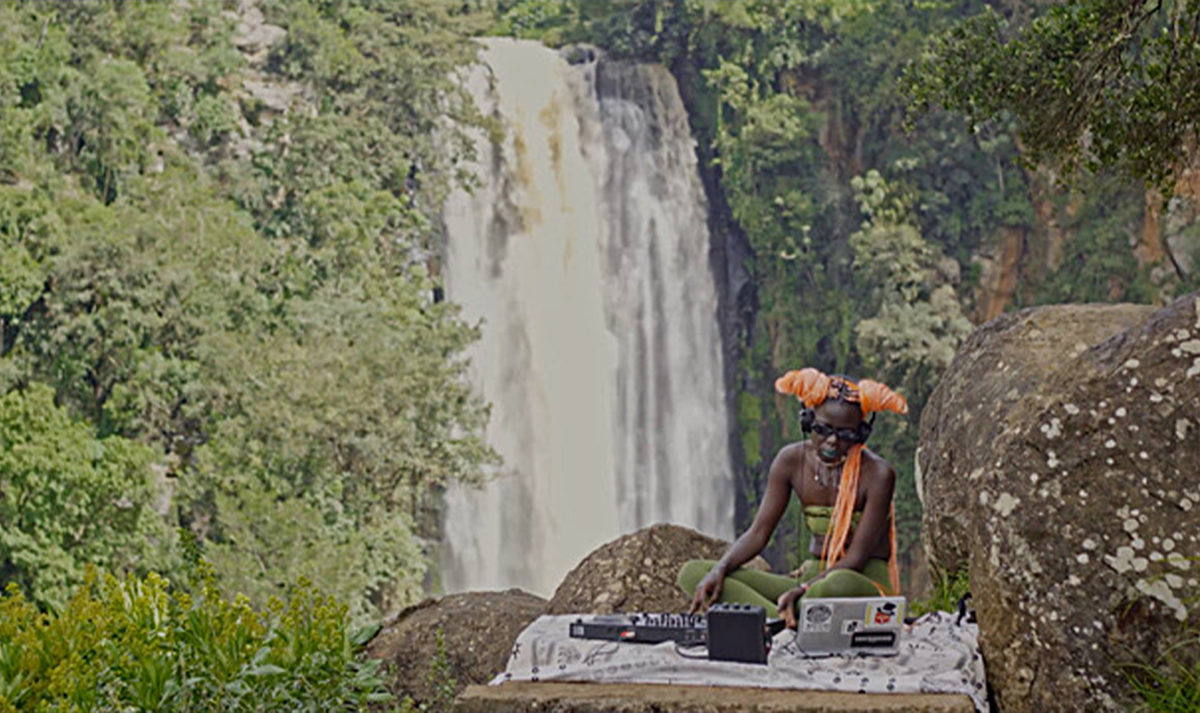
What was your first interaction with TRAKTOR?
It’s the first software that I learnt the basics of DJing on.
What features do you most appreciate about it for your style of DJing?
I like the fact that it immediately analyzes tracks when you import them, as I like to move through different tempos and I sometimes choose tracks on the fly. I don’t over prepare my playlists and like to be spontaneous, even throwing in tracks friends give to be on flash drives during the set. The Flux mode is such a great tool too as it enables me to scratch, backspin, and chop things up without losing my position in a track – I love this for adding some spice to my mix and keeping things unpredictable.
What barriers did you face getting into DJing?
Initially, I didn’t see many female or non binary DJs to look up to while growing up in Kenya. I had basically given up on the idea of it until I moved to Kampala and a whole world of females taking control of the party and in the booth was opened up to me. This made it easy to transition into DJing because it felt like a safe space to explore the clubbing world.
Also access to gear was a problem and I had to borrow equipment every time I was gigging until I was able to save up and buy my own. Being a part of the Nyege Nyege collective and Santuri East Africa community also helped me, making their gear accessible to me whenever I needed it.
Follow Makossiri on Soundcloud and Instagram.
Alai K
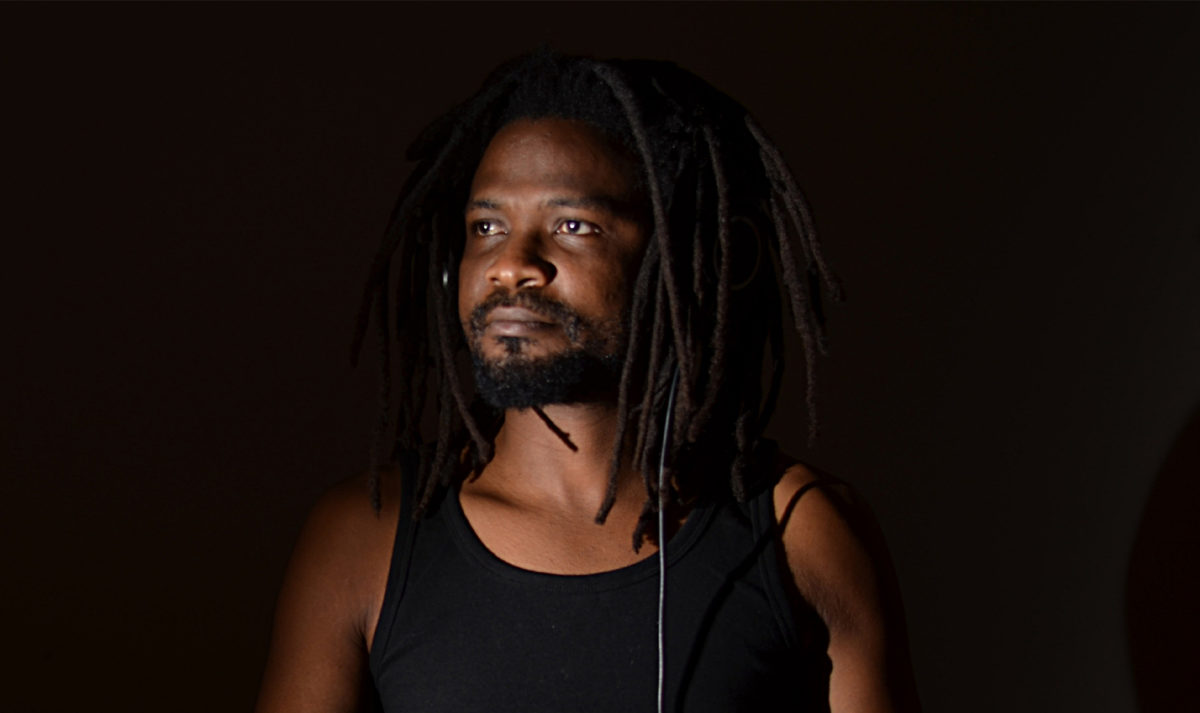
Alai K, aka Disco Vumbi, is a Kenyan artist living in Berlin. He’s just released a new album on On The Corner Records (Kila Mara) and often travels back to East Africa to share his skills with the next generation of producers and DJs.
How did you get into DJing?
It’s a crazy thing. When I was in Kenya I was making music up to 140 or 160 BPM. It was a friend who once told me, “Ah you know your music is too fast, no one is going to play this”, and I told him, “Well I’ll play it myself!” So I started DJing to play my own music. (Laughs)
When I started using TRAKTOR it was more than just playing my music or DJing – it was a tool where I could also play live. I started using stems over my tracks running through TRAKTOR – looping and messing with the originals – so live remixing, really. I use loops a lot – rendering them from my tracks in Ableton, and then just adding layers. Batida was telling me once when I invited him to play in Kenya, that I should use CDJs and the effects from the Pioneer mixers, but this wasn’t easy for me because how can I practice? How can I get access to that gear? I needed my own tools, so I can be inside my own music. That’s when I called a friend working at NI and eventually bought the Z1, X1 and F1 – thet was my first set up.
I’d use a mic for singing over the top – and it’s now fully a part of my live set up. I fell in love with these tools. I could take them anywhere with me and always have my music – even when I was flying somewhere. My aim wasn’t really to be DJing, but playing my own music. But after spending so much time learning the software, I began to also play other peoples music – I became a DJ! (laughs).
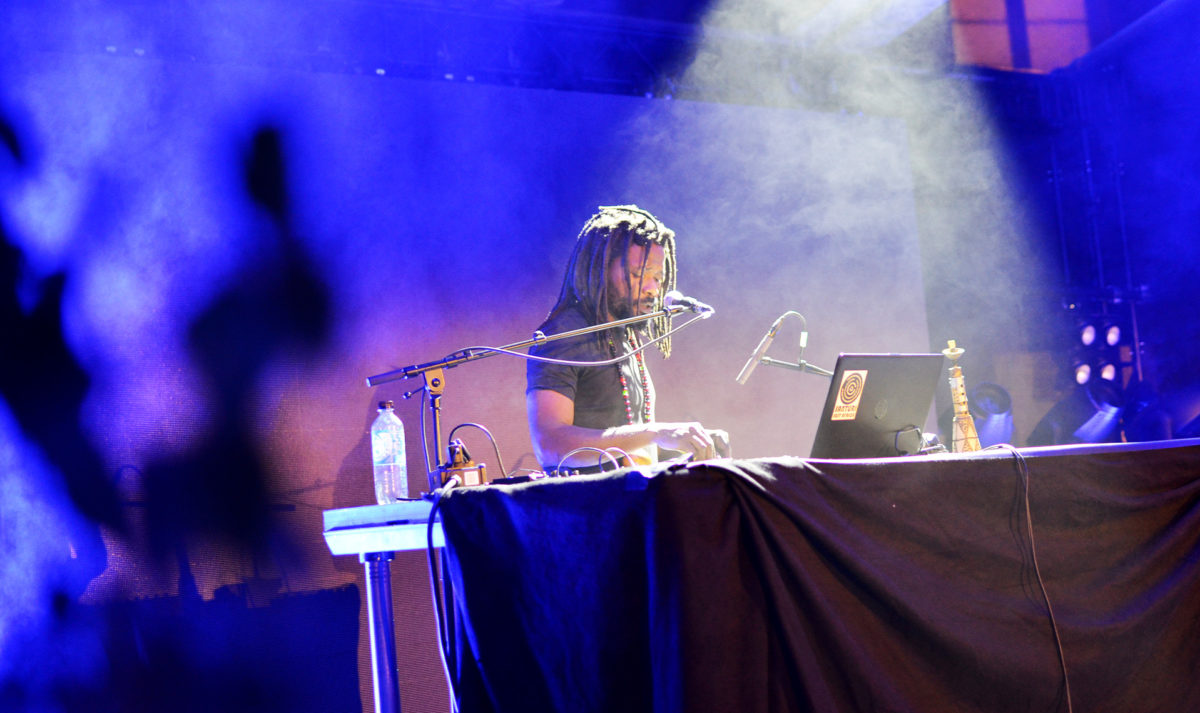
What sort of DJ are you?
I was playing music from the Ugandan guys – like Otim Alpha – as well as disco, funk, a mix of everything really. DJing was something that I felt, ”Why limit myself?” African dance music, zilizopendwa from East Africa – the 70s and 80s stuff. That’s still my style. I can’t only play one style of music.
It’s like my radio show Matatu (on Cashmere Radio); Matatus are the public transport of Kenya (mini buses often with elaborate decorations and huge sound systems), and I relate to the transportation thing. It takes you to a new stop, then to another and another. A different style of music each time – funk, African, disco, techno. I like it this way. It’s how our Kenyan public transport is.
Your own productions seamlessly veer between electronic and ‘traditional’. Can you tell us about that?
I got tired of listening to afrobeats, afro house from South Africa, and bongo flava from Tanzania. I decided I didn’t want to copy that. So I made Kamba benga music from Kenya – but faster, and started to add it to my style. I had this feeling when I came to Berlin for BLNRB with the Teichmann Brothers. I would go to the clubs with them and they would give me a microphone and ask me to sing over tracks. I was singing over techno, and it was like, ”I feel this music!” It feels like Giriama music, because of the patterns. That’s the vibe I got in Berlin 10 years ago. So when I started producing it came out naturally – this connection between the club and my heritage.
For me music is spiritual – it’s not just about fun. When I started making music my mother said, “You are not the only one making music!” When I was growing up my mother used to sing some songs, and these songs were written and sung by my great grandmother, in the time of slavery. And from our culture – the Bajun culture – my father was one of the drummers, a leader of this spiritual music style. Twice a year they would get people together and play this deep spiritual music to make people dance and have this deep connection to the rhythms.
So I don’t want to make music for fame or to be known just for fun – I want to express my culture, give it to the world so people can learn about it, and experience something real. Also so that people understand that the rhythms and roots of techno is Black music – that the roots are deep and it means something.
Check out Alai K’s latest releases on Bandcamp.
DJ Andy
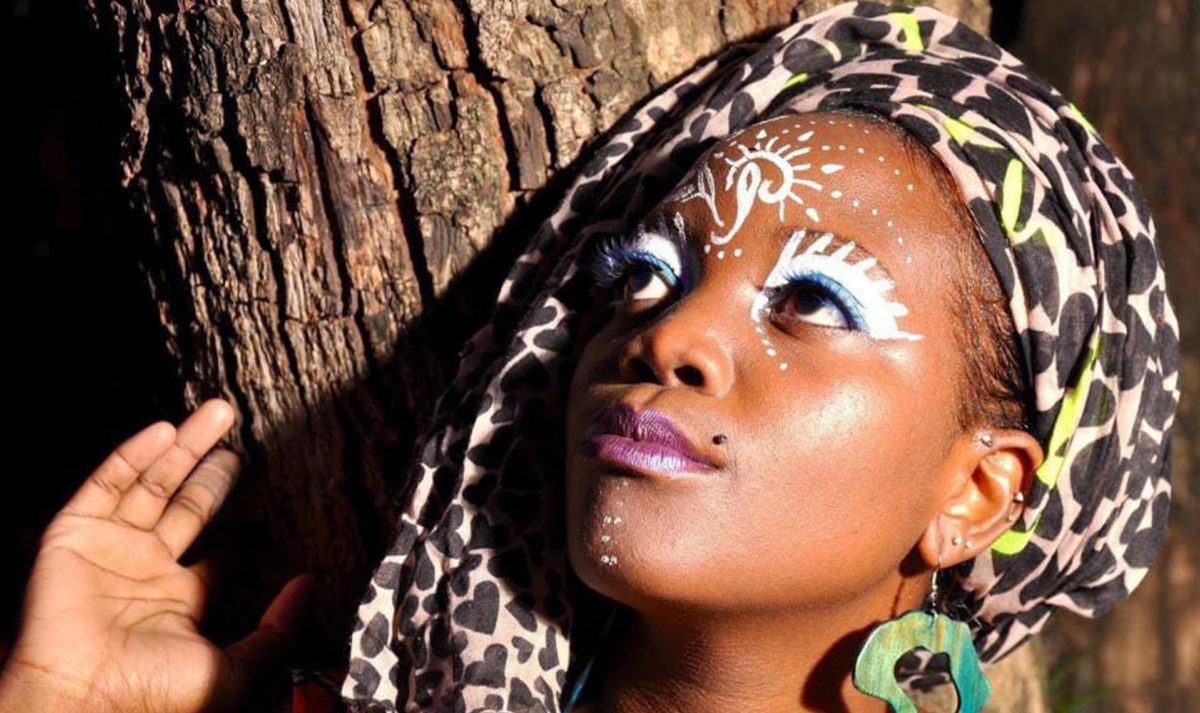
DJ Andy was a key member of the Electrafrique collective who pioneered deep and afro house sounds in Nairobi. Currently Andy holds a residency at the Sunday party spot Captain’s Terrace, facing Nairobi’s national park.
How did you get into DJing?
The journey began with my love for music, which led me through the paths where I found mentors who accepted me, appreciated my passion for music and helped me come through.
How would you describe your style?
I mainly focus on the rhythms – getting souls grooving and dancing particularly to the African vibes. I vibrate to the energies around me, and do well to deliver a set based on the musical chemistry of the crowd.
What was your first interaction with Traktor?
I started using TRAKTOR in 2012 through the Audio 4 and 6, then the TRAKTOR KONTROL X1 and Z1. Currently, I am using the S8.
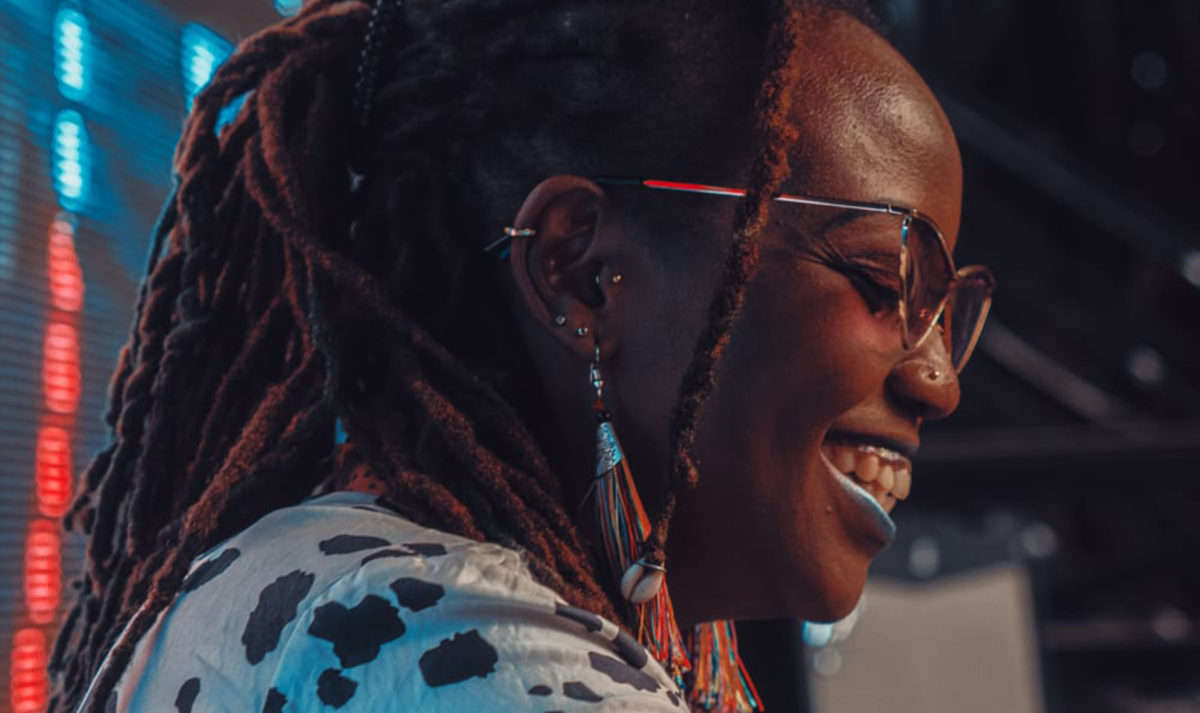
What features do you most appreciate about it for your style of DJing?
You get a wider array of beat and sounds effects on TRAKTOR. TRAKTOR also gives you a little bit more freedom with the customization options.
What’s your vision for the East African music scene and DJ culture?
I would like to see more growth in terms of collaborations and a scene that supports, guides and encourages upcoming creatives.
Did you face any extra difficulties being a woman in such a male space?
Back then, there were very few female DJs – one to none in house music. It’s harder to open up doors when appearances are valued more than musical skills. I wanted to pave the way for other female DJs who would come after me, therefore my main focus was to be exemplary in my music, DJ skills, self discipline, and business ethics.
As years passed, the scene has become more open and supportive of female DJs thus making it easy for us women to have an equal or higher standing in the scene. I feel that we now live in a more advanced time where gender isn’t an issue.
Can you tell us a little about Electrafrique? How did it start and what was the impact / legacy of this project?
Electrafrique started back in 2012-2013 when Electrique DJs and The Beat Parade Band merged with DJ Cortega – a like minded group of creatives who ended up creating an ensemble that would be a pioneer to the House Music Movement in Nairobi. It is a brand built on passion, friendship, drive and a yearning to keep and harness African rhythm, culture, and heritage through music and dance. We aim to bring the native elements (our African drums, percussion, etc.) and the contemporary elements (Djing, keys, guitar, etc.) to the world.
Follow DJ Andy on Instagram.
Nsasi
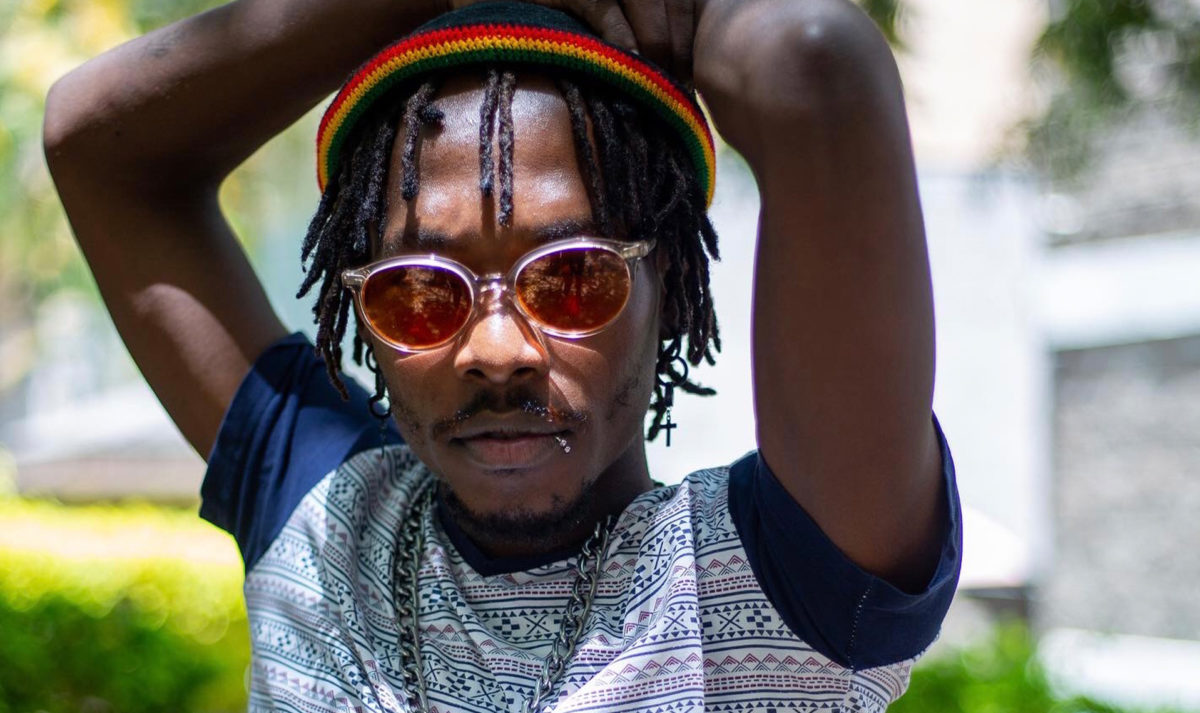
Nsasi is founding member of the Anti-mass – a queer club night & collective based in Kampala, Uganda.
What got you into music?
About 3 years ago, I was just a raver and party lover with a hidden desire to be more involved in music. Before I was ex-communicated, I participated in music as a performer in the seminary. After my time there I had to face the realness of the world which meant putting my passions aside and finding a hustle.
Fast forward, I met Authentically Plastic – the DJ and producer who I would join as co-founder of the Anti-mass collective. This exposed me to different avenues of how I wanted to relate with music beyond just the dance floor. I then started DJing. The desire to have a sound specific to me made me curious to start production. I’m still exploring that but that’s basically how I got into DJing.
What style of music do you play / make?
I would call my style experimental, just because I experiment with many possibilities in both my sets and production. I work with noise as an element, synthesizers, and heavy drums. I like to use elements of traditional sounds from my tribe to guide my mind towards sounds, but I’m not limited by it. It’s just intended to give me a closer relationship to what I am creating.
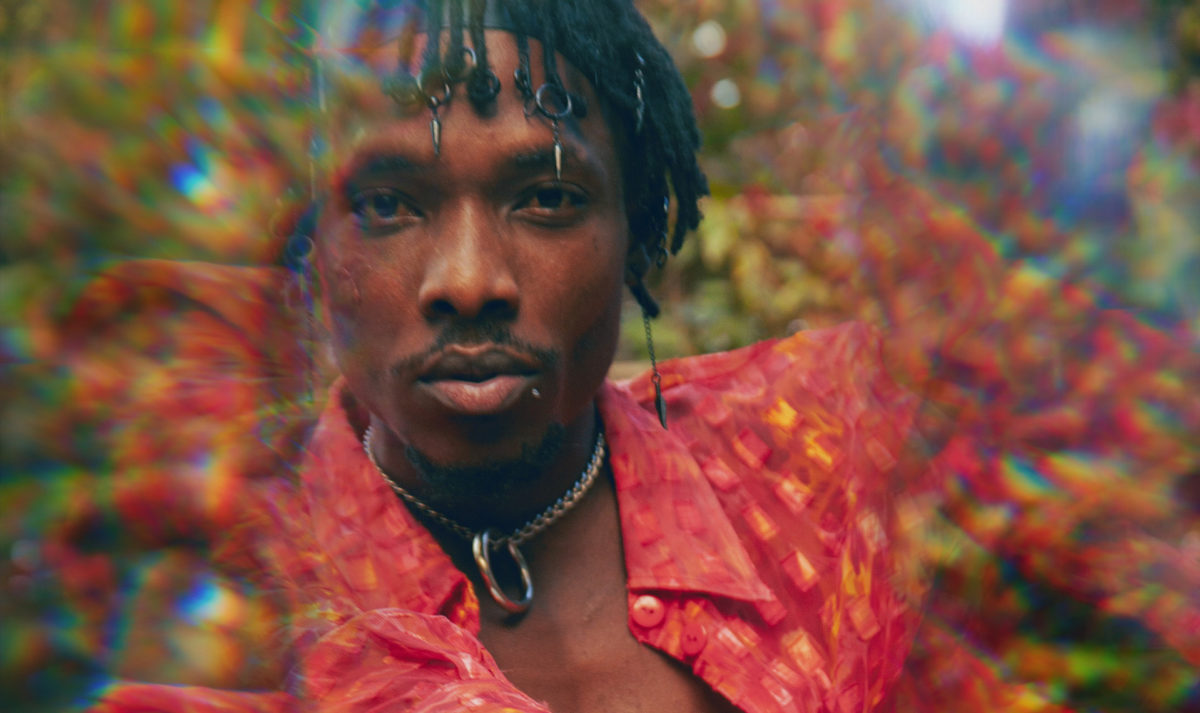
What’s your set up?
TRAKTOR was the first ever DJ equipment I used. My friend Hibotep had an extra S3 controller that she helped me with a few times to practice. This was my first interaction with TRAKTOR. I now use the TRAKTOR S8 and I find it suits my style. It has easy navigation to track lists, selection, good displays, and a screen to help you concentrate on your performance. TRAKTOR’s FX are amazing too!
What’s your vision for the E.A music scene?
I am honestly humbled to take these shoes. I wish to see the music scene in EA grow, and see artists being respected for their creations and able to sustain their lives out of their craft. I believe this is one of the reasons art suffers dilution and inconsistency. Moving forward, I would like to see DJs have control of their styles and preach hard the gospel of great music, sound, and culture in the way they best understand it. In other words, not settle for less.
Follow Nsasi on Twitter, Instagram, and Soundcloud.








